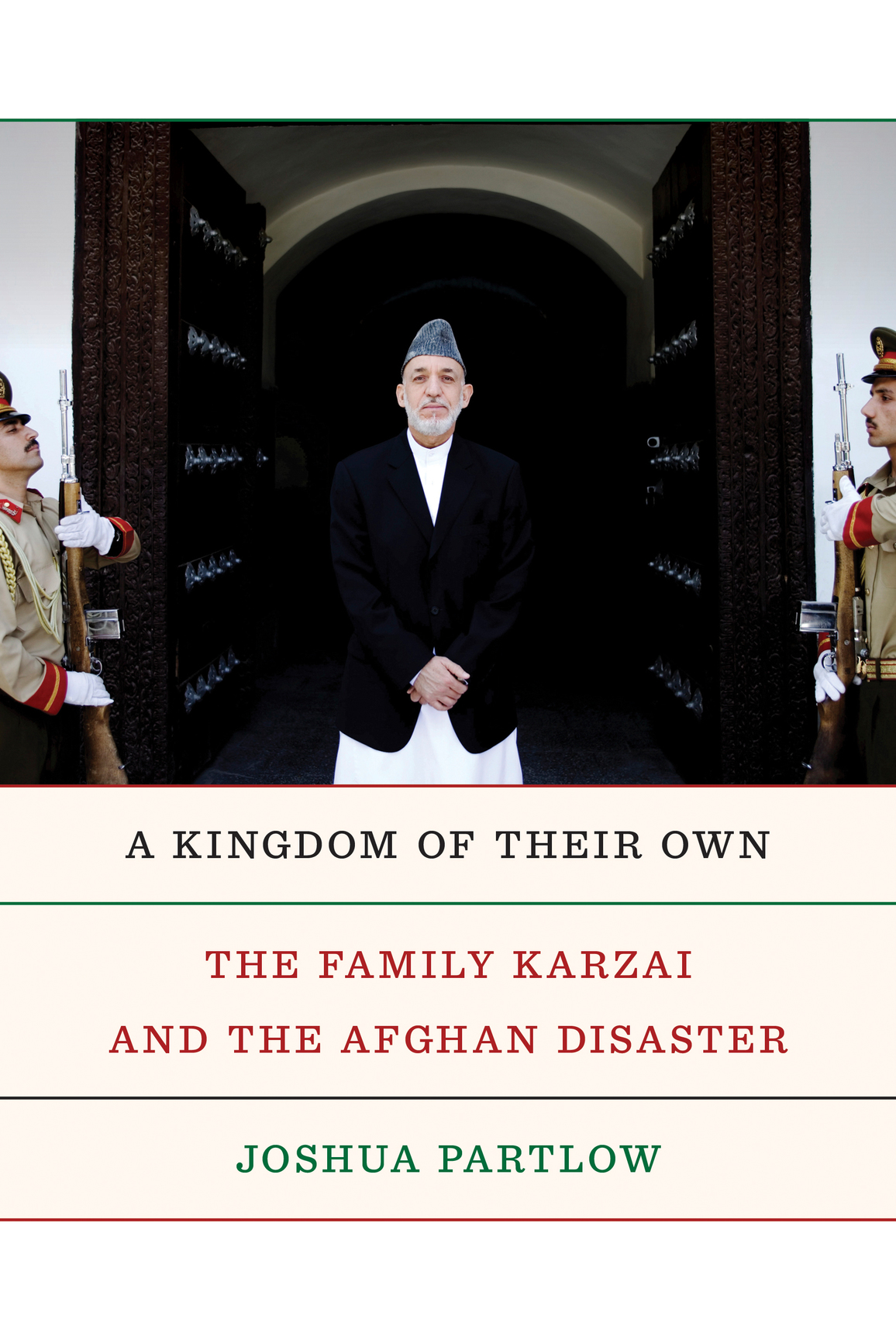
A Kingdom of Their Own
The Family Karzai and the Afghan Disaster
کتاب های مرتبط
- اطلاعات
- نقد و بررسی
- دیدگاه کاربران
نقد و بررسی

Starred review from July 18, 2016
A veteran foreign correspondent explores America’s entanglement with Afghanistan, our country’s longest war, through the lens of the Karzai family, which wielded power from the 2001 ousting of the Taliban until 2014. That time span encompasses a period of hope, a tempering of expectations, and a near-total breakdown in President Hamid Karzai’s relations with the United States. Partlow, an astute and thoughtful reporter, shows how the U.S. eventually came to view Karzai as hapless—or tacitly complicit—in the face of widespread corruption. The book, however, offers a more nuanced perspective on what went wrong. It focuses mostly on Hamid Karzai, but also profiles his brothers, notably Ahmed Wali Karzai, assassinated in 2011 after years of speculation that he was a narcotics kingpin. Partlow also devotes much space to U.S. failures in battling corruption in Afghanistan, showing how the policy of rotating military personnel through on short tours made it difficult for American service members to familiarize themselves with the country. American military and political arrogance butts up against deep-rooted cultural customs and family networks throughout this excellent account of a vastly difficult topic. Agent: Rafe Sagalyn, Sagalyn Literary Agency.

July 15, 2016
A summary and analysis of the United States' troubled relationship with former Afghan president Hamid Karzai and his sprawling, influential family.Washington Post Mexico bureau chief (previously Kabul chief) Partlow provides an insightful, revealing dissection of the failures of the U.S government in Afghanistan by focusing on the multifarious, endlessly fascinating Karzai family. Naturally, Hamid Karzai's American-aided rise to the head of Afghanistan's post-Taliban government and his subsequent disillusionment with the American mission take center stage in the narrative. From the American perspective, Hamid went from "a compromise candidate known for compromising, the favorite of no Afghan group--even his own--but the least objectionable, and least threatening, to all" to, in the words of Ambassador Karl Eikenberry, "not an adequate strategic partner." Partlow takes pains to illustrate how civilian deaths and unfulfilled promises led to Hamid's increasing skepticism toward the war effort. The author also spends a great deal of time on Hamid's extended family, especially the business-minded dreamer Mahmood Karzai and Ahmed Wali, either a scheming Popalzai--the Karzais' tribe--warlord or staunch American ally, depending on whom you ask. Partlow's character portraits are masterful, often based on firsthand observations and relying on small but crucial personal details to convincingly render these complex, multifaceted men. The author's reporting often leads to revealing tangents, including a deep dive into a decades-old blood feud between two branches of the Karzai family that gives Western readers a window into the role that honor and revenge still play in Afghan society. According to Partlow, the Karzais "stood at the center" of the hubristic U.S. effort to "remake an ancient tribal society into a modern democratic country." The "Afghan disaster" is as much the result of cultural misunderstandings as it is misallocated funds and poor strategic planning. An excellent introduction to the Karzai family and to the disastrous consequences of the Americans' inadequate understanding of Afghan culture.
COPYRIGHT(2016) Kirkus Reviews, ALL RIGHTS RESERVED.

August 1, 2016
Beset with wars and invasions for much of the past century, Afghanistan entered the 21st century with more of the same. Numerous accounts detail the American experience, which began its latest phase after the September 11 attacks. But that period only set the stage for more conflict as the government of Hamid Karzai, who served as present of Afghanistan from 2004 to 2014, struggled to maintain control over the sprawling and forbidding countryside. This valuable account by Partlow, who began serving as foreign correspondent for the Washington Post in 2006, helps readers clearly understand the complex and ever-changing challenges that Karzai's government faced. Partlow knows his subject well, providing a thorough accounting of Karzai, his family, and the slow erosion of American support throughout the years that Karzai held office. The author is sympathetic to the Afghan leader's incredibly complex political and social mileau, but he is also honest when he believes Karzai could have been more forthright in his actions. VERDICT A strong assessment of Karzai's government and an important contribution to any well-rounded collection on contemporary Middle Eastern politics and society.--Ed Goedeken, Iowa State Univ. Lib., Ames
Copyright 2016 Library Journal, LLC Used with permission.

October 1, 2016
After 14 years, billions of dollars spent, and more than 2,000 soldiers' lives lost, the U.S. has failed in its mission to establish a Western-style democracy in Afghanistan, according to Partlow, the Washington Post's Kabul bureau chief from 200912. Partlow's meticulously documented assessment focuses on the Karzai family, which includes the country's first post-Taliban president, regional leaders, and business magnates, and its changing relationship with two U.S. administrations. Highlighted are episodes of the family's progress, from years in exile in the U.S. to the pinnacle of Afghan power via government appointments and military contracts, and all too often involving financial corruption, family feuds, murder, and political brinkmanship. Partlow illustrates attitudinal changes in his portrayal of Hamid Karzai, who was all but handpicked by the U.S. to be president, then actively worked to end U.S. involvement. Readers are left with a better understanding of the complexities faced by leaders and diplomats through first-hand reportage that takes us as close to the action as we've ever been, and by expert analysis. A fantastic addition to Middle Eastern, political, and history collections.(Reprinted with permission of Booklist, copyright 2016, American Library Association.)

























دیدگاه کاربران